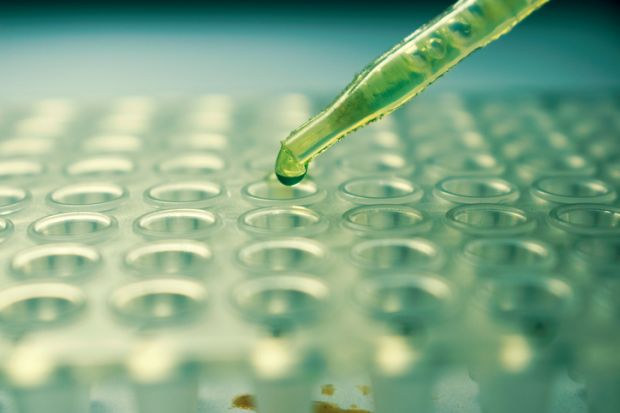The Royal Society of Chemistry is to award more prizes that recognise team science, technicians and interdisciplinary research, rather than simply honouring individual scientists.
At present, 80 of the 90 prizes awarded by the society go to individuals, including the society’s Faraday Lectureship Prize, which has been awarded every three years to an outstanding theoretical chemist since the award’s creation in 1869.
However, the Royal Society of Chemistry announced on 12 December that, following an independent review, there will be “more opportunities for teams and collaborations to be recognised for their work” as this “more closely reflect[s] how science is carried out today”.
It will announce its new suite of awards next year as part of a “rationalisation” of its prize structure, the society said.
Helen Pain, the society’s deputy chief executive officer, said the current recognition schemes in science had “their roots in the 19th century” but the new structures would “reflect the challenges we face today”.
“Outstanding science is often a team effort, contrary to the stereotypical image of a solo chemist striving in isolation at their bench,” explained Dr Pain.
While “excellence will remain the first criterion for winning an award”, said Dr Pain, the society would be “shining a light on the many types of excellence and the different facets of diversity that are crucial for modern science”.
As part of a five-point plan to reform its recognition processes, the RSC will give greater recognition to those who teach chemistry, “showcase leaders, regardless of their normal job or role, who go above and beyond to break down barriers in the chemical sciences” and “celebrate the scientific breakthroughs that transform our understanding of the world and solve major issues like climate change”.
The society will also issue conduct expectations for winners and the power to revoke awards if these standards are not met.
The changes follow an independent review by a panel chaired by Jeremy Sanders, professor of chemistry at the University of Cambridge, who said that “more recognition for teams was required”.
“Science breakthroughs come more often from teams than from individuals,” said Professor Sanders, whose review included consultation with more than 2,000 people via surveys, interviews and workshops, including with previous award-winners, judges and RSC staff.
In the survey, which had 1,821 responses, 50 per cent of those consulted said that contributions by high-profile scientists were most likely to be rewarded, while 41 per cent said that nepotism was a problem with awards. Thirty-four per cent warned that researchers may pursue prizes over advancing science, and 33 per cent expressed concern about the amount of time that it took to apply or nominate someone.
Some respondents also raised concerns about the lack of diversity among award-winners.
Register to continue
Why register?
- Registration is free and only takes a moment
- Once registered, you can read 3 articles a month
- Sign up for our newsletter
Subscribe
Or subscribe for unlimited access to:
- Unlimited access to news, views, insights & reviews
- Digital editions
- Digital access to THE’s university and college rankings analysis
Already registered or a current subscriber? Login








